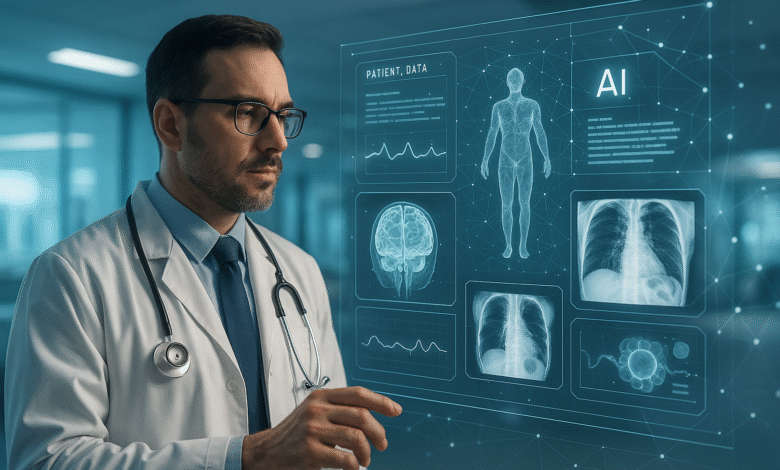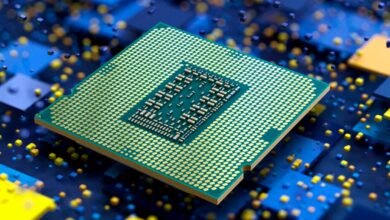
The healthcare industry is experiencing a massive transformation, and artificial intelligence in healthcare sits at the center of this revolution. From diagnosing diseases faster than human doctors to predicting patient outcomes before symptoms appear, AI is reshaping how we think about medicine. If you’re wondering what all the fuss is about, you’re in the right place.
Machine learning algorithms now analyze medical images with incredible accuracy, while natural language processing systems help doctors sift through thousands of patient records in seconds. These aren’t futuristic concepts anymore. They’re happening right now in hospitals and clinics around the world. The AI healthcare market, valued at $11 billion in 2021, is projected to reach nearly $187 billion by 2030, according to industry forecasts Artificial Intelligence (AI) in Healthcare & Medical Field.
But here’s the thing: understanding artificial intelligence in medicine doesn’t require a computer science degree. Whether you’re a healthcare professional, a patient curious about your treatment options, or someone interested in how technology changes our world, this guide breaks down everything you need to know. We’ll explore how AI improves medical diagnosis, enhances patient care, streamlines hospital operations, and what challenges stand in the way of widespread adoption. Let’s dive into the world where technology meets healing.
What Is Artificial Intelligence in Healthcare?
Artificial intelligence in healthcare refers to the use of complex algorithms and software to mimic human cognition in analyzing, interpreting, and understanding medical data. Think of it as giving computers the ability to learn from experience and make decisions that traditionally required human intelligence.
At its core, AI healthcare encompasses several key technologies:
- Machine learning: Systems that improve automatically through experience without being explicitly programmed
- Deep learning: A subset of machine learning that uses neural networks to process vast amounts of data
- Natural language processing (NLP): Technology that helps computers understand and interpret human language, including medical notes and research papers
- Computer vision: AI that can “see” and interpret medical images like X-rays, MRIs, and CT scans
These technologies don’t work in isolation. They combine to create powerful tools that help healthcare providers deliver better, faster, and more personalized care.
How AI Transforms Medical Diagnosis
Enhanced Diagnostic Accuracy
One of the most significant impacts of artificial intelligence comes in medical diagnosis. AI systems can meet or exceed human expert performance in image-based diagnoses across multiple medical specialties, including radiology, dermatology, pathology, and cardiology.
In radiology, AI-powered algorithms analyze thousands of medical images to recognize patterns that might escape the human eye. Studies show that AI systems detect breast cancer in mammograms more accurately than human radiologists. This isn’t about replacing doctors but giving them a powerful second opinion that catches what they might miss during a long shift.
Deep learning models in pathology can identify cancer cells in tissue samples with remarkable speed and accuracy. These systems analyze whole-slide pathology images to detect lymph node metastases of breast cancer, often spotting subtle indicators that could determine the course of treatment.
Early Disease Detection
Predictive analytics powered by machine learning can identify early signs of diseases like cancer, heart disease, and stroke before symptoms become apparent. This capability is game-changing because early detection dramatically improves patient outcomes.
For stroke patients specifically, new AI software is twice as accurate as professionals at examining brain scans and can identify the timescale within which the stroke occurred, which is crucial information for determining the appropriate treatment window.
AI Applications in Clinical Practice
Clinical Decision Support Systems
Clinical decision support represents one of AI’s most practical applications. AI algorithms analyze vast amounts of patient data to assist medical professionals in making more informed care decisions, outperforming traditional tools like the Modified Early Warning Score.
These systems help doctors by:
- Stratifying patients based on risk levels
- Identifying potential drug interactions
- Suggesting evidence-based treatment options
- Predicting which patients might deteriorate in the coming hours
The result? Fewer medical errors, better patient safety, and more confident decision-making at the point of care.
Precision Medicine and Personalized Treatment
Precision medicine uses AI to tailor treatments based on individual patient data rather than a one-size-fits-all approach. Machine learning algorithms analyze a patient’s genetic information, medical history, lifestyle factors, and current health status to recommend personalized treatment plans.
This approach is particularly powerful in oncology, where understanding the specific molecular characteristics of a tumor can guide doctors toward the most effective treatment options while avoiding unnecessary side effects from therapies unlikely to work.
Medical Imaging and Diagnostics
Medical imaging has become one of the strongest use cases for AI in healthcare. More than half of AI-based medical devices approved in the USA and Europe from 2015-2020 were for radiological use.
Computer vision technology processes X-rays, MRIs, CT scans, and ultrasounds to:
- Detect abnormalities like tumors, fractures, or internal bleeding
- Measure organ dimensions and track changes over time
- Identify patterns associated with specific conditions
- Prioritize urgent cases for immediate attention
Hospitals perform 3.6 billion imaging procedures annually, generating massive amounts of data, with approximately 97% going unused. Machine learning helps structure and leverage this information for more accurate diagnostics.
Operational Efficiency and Administrative Benefits
Beyond direct patient care, artificial intelligence in healthcare streamlines operations and reduces administrative burden:
Electronic health records (EHR) management: Natural language processing extracts relevant information from clinical notes, discharge summaries, and research articles, making it easier for doctors to access patient information quickly.
Workflow optimization: AI systems analyze patient flow, resource allocation, and scheduling to improve hospital efficiency. This means shorter wait times, better resource utilization, and reduced burnout among healthcare providers.
Automated documentation: Voice recognition and NLP technologies transcribe doctor-patient conversations, generate clinical notes, and populate electronic health records automatically, giving doctors more time to focus on patients rather than paperwork.
Drug Discovery and Development
AI healthcare applications extend beyond diagnosis and treatment into pharmaceutical research. Machine learning accelerates drug discovery by:
- Analyzing molecular structures to identify promising drug candidates
- Predicting how compounds will interact with biological targets
- Identifying existing drugs that might treat new conditions
- Optimizing clinical trial design and patient recruitment
This acceleration matters because traditional drug development takes over a decade and costs billions of dollars. AI has the potential to cut both time and costs significantly.
Current Challenges and Limitations
Despite its promise, artificial intelligence in healthcare faces several significant challenges:
Data Privacy and Security
Healthcare data is incredibly sensitive. Implementing AI systems requires access to large datasets of patient information, raising concerns about privacy breaches and data security. Healthcare data is highly sensitive, inconsistent, siloed, and not optimized for machine learning development.
Algorithmic Bias
AI algorithms learn from historical data, which may contain inherent biases. If training data doesn’t represent diverse patient populations, the resulting AI systems may perform poorly for underrepresented groups, potentially worsening healthcare disparities.
Integration with Existing Systems
Many healthcare systems rely on legacy technology that doesn’t easily integrate with modern AI tools. Implementing AI requires significant infrastructure investments and workflow changes that can disrupt established processes.
Regulatory Compliance
The regulatory landscape for AI medical devices continues to evolve. The FDA and other regulatory bodies are working to establish frameworks for evaluating AI performance, but standards remain in development, creating uncertainty for developers and adopters.
Need for Human Expertise
AI doesn’t replace human judgment. Healthcare providers need training to understand AI recommendations, recognize limitations, and know when to override algorithmic suggestions. The technology works best when augmenting rather than replacing human expertise.
The Future of AI in Healthcare
Looking ahead, artificial intelligence in healthcare will continue expanding into new areas:
Virtual health assistants: AI-powered chatbots and virtual nursing assistants will provide 24/7 patient support, answer questions, and monitor chronic conditions remotely.
Wearable technology integration: AI will process data from smartwatches and fitness trackers to provide real-time health monitoring and early warning systems for potential issues.
Robotic surgery: AI-guided surgical robots will perform complex procedures with greater precision than human hands alone.
Population health management: Predictive analytics will help public health officials identify disease outbreaks, allocate resources effectively, and implement preventive interventions at the community level.
With 4.5 billion people lacking access to essential healthcare services and a health worker shortage of 11 million expected by 2030, AI has the potential to bridge critical gaps in global healthcare access.
Getting Started with AI in Healthcare
For healthcare organizations considering AI adoption:
- Start small: Pilot AI tools in specific departments before organization-wide implementation
- Prioritize training: Ensure staff understand how to use AI tools effectively and interpret results
- Focus on data quality: AI performance depends on high-quality, well-organized data
- Engage stakeholders: Include clinicians, administrators, IT staff, and patients in planning and implementation
- Monitor outcomes: Continuously evaluate AI system performance and impact on patient outcomes
Conclusion
Artificial intelligence in healthcare represents one of the most transformative technological shifts in modern medicine. From improving diagnostic accuracy and enabling earlier disease detection to personalizing treatment plans and streamlining hospital operations, AI is changing how healthcare is delivered.
While challenges around data privacy, algorithmic bias, and regulatory frameworks remain, the potential benefits are enormous. As the technology matures and adoption increases, we’re moving toward a future where machine learning, deep learning, and other AI technologies work alongside healthcare providers to deliver better outcomes for patients.
The question isn’t whether AI will transform healthcare but how quickly we can implement it responsibly to improve lives. Understanding these fundamentals puts you ahead of the curve in one of the most exciting intersections of technology and human wellbeing.







